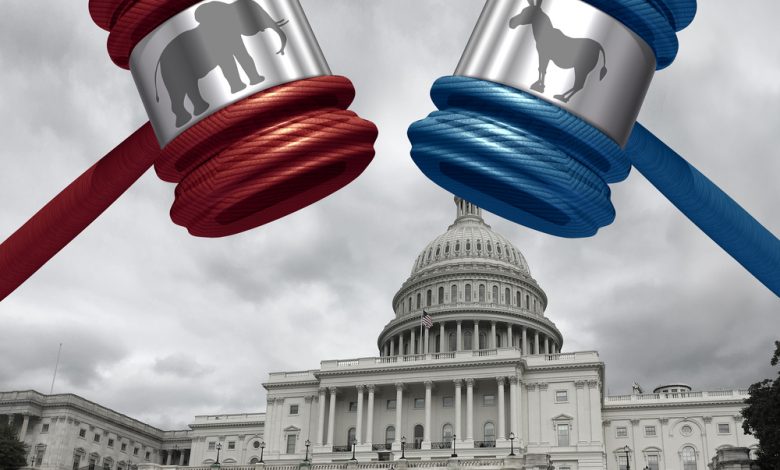
We aren't even a month into the new legislative session that has ushered in Republican control of the lower chamber of Congress, and already a standoff over the nation's debt ceiling has emerged.
With a split legislative branch that currently sees the GOP controlling the House of Representatives, and the Democrats controlling the Senate, we can expect several budgetary battles over the next 23-plus months.
Table of Contents
What is the Debt Ceiling?
Many people who are not exactly familiar with Congress and its plethora of procedural jargon may ask, What exactly is the Debt Ceiling and the current battle in congress all about? Well, the debt ceiling argument in Congress is centered around the nation's borrowing limit. The debt ceiling is a legislative limit set by Congress that restricts how much money the federal government can borrow to finance its operations. When the U.S. Treasury reaches this set limit, it must either seek additional approval from Congress to raise the debt ceiling or find another way to reduce spending and/or increase revenue.
The current debate over raising the debt ceiling has become an intense political battle between Democrats and Republicans who disagree on how much of a spending cut should be implemented before raising the debt threshold. Democrats are arguing for fewer cuts than their Republican counterparts, citing concerns about damage to vital social programs such as Medicare, Social Security, and unemployment insurance. Republicans are advocating for deeper spending cuts to reduce the national deficit and debt.
The debt ceiling itself has been around since 1917, when it was first introduced by Congress in the Second Liberty Bond Act. It has been raised numerous times throughout U.S. history, with the most recent increase taking place in January 2021 when President Biden signed a bipartisan bill raising the debt limit by nearly two trillion dollars.
According to some legislators, raising the debt ceiling is an important step necessary to maintain full faith and credit of the United States government, enabling it to meet its financial obligations such as paying military personnel, social security recipients, Medicare recipients and other entitlement programs funded by tax revenue or borrowed funds from investors. They feel that failure to raise the debt ceiling would be catastrophic, leading to a government shutdown, job furloughs and potential damage to U.S. credit ratings from investors around the world.
What Does the Current Debt Ceiling Argument Center Around?
America's debt surpassed $31.4 million on Thursday, surpassing a soft-limit that Congress had previously instituted, leading the Treasury Department to begin employing “extraordinary measures” to prevent the United States from defaulting on its debt.
The "Extraordinary" measures, which Treasury Secretary Janet Yellen estimates should last through early June, are designed to allow Congress the necessary time to address the debt ceiling. Should lawmakers fail to raise the debt limit causing America to default on its debts, it may trigger a global economic crisis.
The Biden Administration and many Democratic lawmakers have refused to negotiate with GOP House members, following the particularly ugly fight between the Obama administration and House Republicans in 2011. They are instead calling for a significant increase of the debt ceiling.
“Like the President has said many times, raising the debt ceiling is not a negotiation; it is an obligation of this country and its leaders to avoid economic chaos,” White House press secretary Karine Jean-Pierre said in a statement on Friday.
On the GOP side, newly minted House Speaker Kevin McCarthy (R-Calif.) faces pressure from House Republicans to tie the issue of the debt ceiling to spending cuts.
How Will the Debt Ceiling Negotiation Play Out?
In conclusion, raising the debt ceiling is seen by many as essential for maintaining the full faith and credit of the United States government. Many will also argue that it is also critical for keeping vital programs like Social Security, Medicare and unemployment insurance up and running to provide adequate support for those in need.
However, it is important that Congress works together to find an effective solution that will satisfy both Democrats and Republicans without putting too much strain on budget constraints or adversely affecting social programs. The debate over the debt ceiling remains ongoing as both sides attempt to come to a reasonable agreement while still preserving their respective interests. It is likely that a compromise will be met shortly that will continue to fund the federal government, as well as keep the US up to date on its debt interest payments.





Leave a Reply
Thank you for your response.
Please verify that you are not a robot.